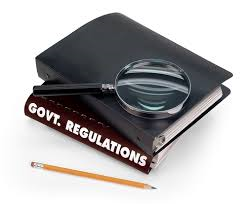
Trump, Congress, cut these regs to make higher education great again

Despite an encouraging number of new jobs created last month — 235,000 new jobs added — the nation has a long way to go when it comes to getting more people back to work at good paying jobs. The latest unemployment rate of 4.7 percent does not include the number of Americans who have withdrawn from the active labor force.
The number of people who have stopped looking for work has increased by more than 14 million since 2009. America now has a whopping 94 million people who are no longer trying to find a job and this represents a huge problem for our nation.
It remains to be seen if the new Trump administration and Congress can become catalysts to improve the U.S. economy and the job market, but if the new president truly wants to achieve 4 percent economic growth, substantive policy changes are needed in Washington. The president and the Congress must reexamine policies regarding how Colleges and Universities operate — with an eye to helping these schools prepare a new generation of educated, skilled workers.
Sadly, the past administration and education elites have waged a systematic campaign to dismantle private colleges and universities offering students a career oriented education — career education designed to help students prepare for specific jobs in healthcare, computer networking, technology, automotive/aircraft repair, law enforcement, etc.
In just the past few years more than 750 private college campuses have been forced to close, leaving tens of thousands of students — women, African American and Latino students — with fewer or no educational options.
The university “composite score” rating is a prime example of how the past administration was using its power to shut down funding for private colleges by arbitrarily labeling many private schools as, “not financially responsible.”
Such a label — given with virtually no chance for input or appeal — poses an immediate threat to a school’s effort to attract students and receive Title IV funding.
Schools with low scores are subjected to heightened cash monitoring requirements by bureaucrats who have little knowledge of University operations. Many schools are required to post letters of credit equaling up to 50 percent of their Title IV funding — a completely useless mandate most schools cannot meet, and negatively impacting their ability to reinvest in academics, innovation, or capital improvements for students.
The “State Authorization” rule is another regulation which needs to end. This mandate requires an institution to be authorized by the state where it has a physical location and in any other state where it provides long distance education. In today’s era of online classes, one can imagine the endless sea of bureaucracy and red tape such a rule creates. The regulation has done nothing to improve the quality of education but it has created a huge, regulatory mess with every state required to have an undefined oversight agency to act upon potential complaints. Part of the regulation was struck down in federal court in 2011, but other elements of this needless regulation remain in effect.
Recognizing the need for action, Rep. Virginia Foxx of North Carolina introduced a bill designed to eliminate unnecessary federal regulations that restrict choice and opportunity in higher education, including the state authorization regulation and another onerous rule, the nearly 900-page gainful employment regulation.
The Gainful Employment Rule prohibits students who have government loans access to various education programs that don’t meet arbitrary debt-to-earnings requirements for graduates within three years. The rule punishes students pursuing careers in the arts, technology or electrical engineering — careers that require apprentice programs lasting much longer than three years or careers that naturally take longer than three years to monetize.
Finally, the, “Borrower Defense to Repayment” rule was imposed to allow students to simply walk away from their loan obligations if they believed they were victims of fraud by a school. In purely big government form, this rule was crafted with virtually no input from colleges or universities. One former Department of Education (ED) official who worked on the rule-making process said schools not remotely guilty of fraud, but who perhaps made an honest mistake, might be judged guilty by ED.
The rule gives ED virtually unlimited power in condemning the actions of an individual school without reasonable arbitration. One can only imagine the potential floodgate of litigation if it became known that any student could simply claim fraud against his college and walk away from his/her loan obligations.
Our nation needs a new generation of skilled workers who can enter the job market properly educated and ready for work. Private, non-profit colleges and universities play a vital role in our education system and must be allowed to operate under commonsense regulations.
The new administration and the new Congress can work to remove many of the bureaucratic barriers that are presently hurting private colleges and universities and preventing tens of thousands of students from achieving the education they need to reach their career goals.
